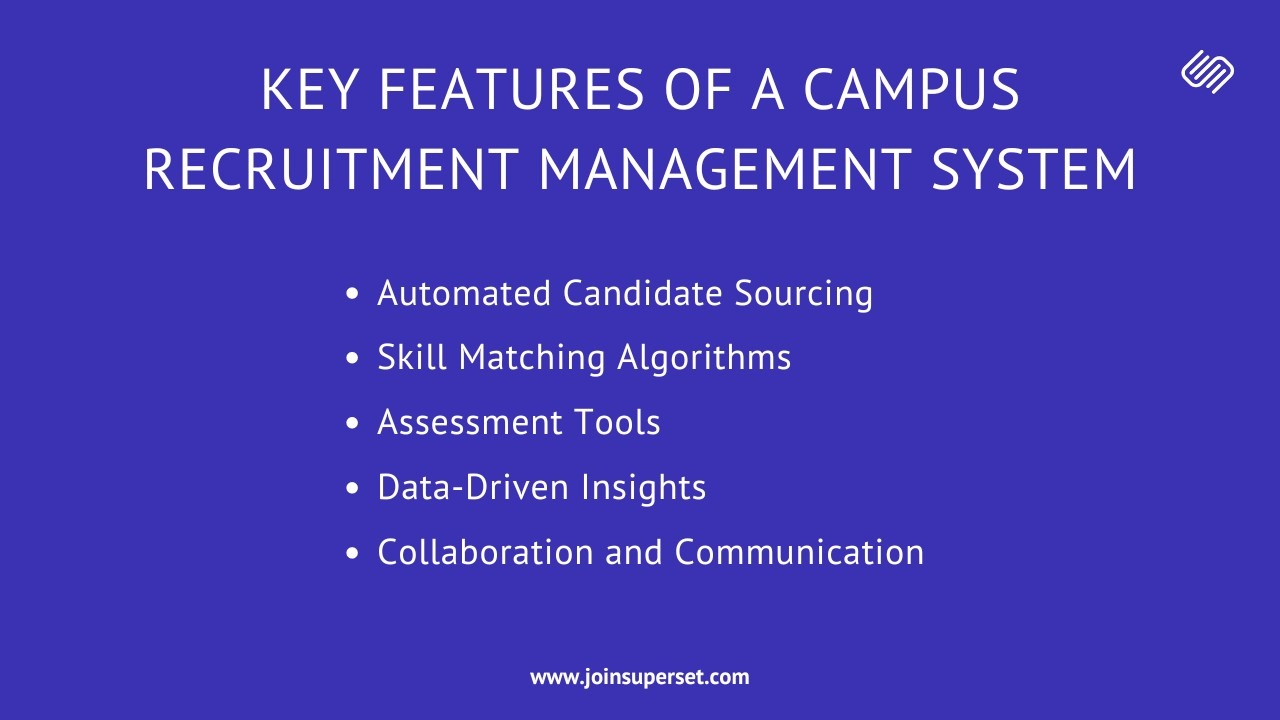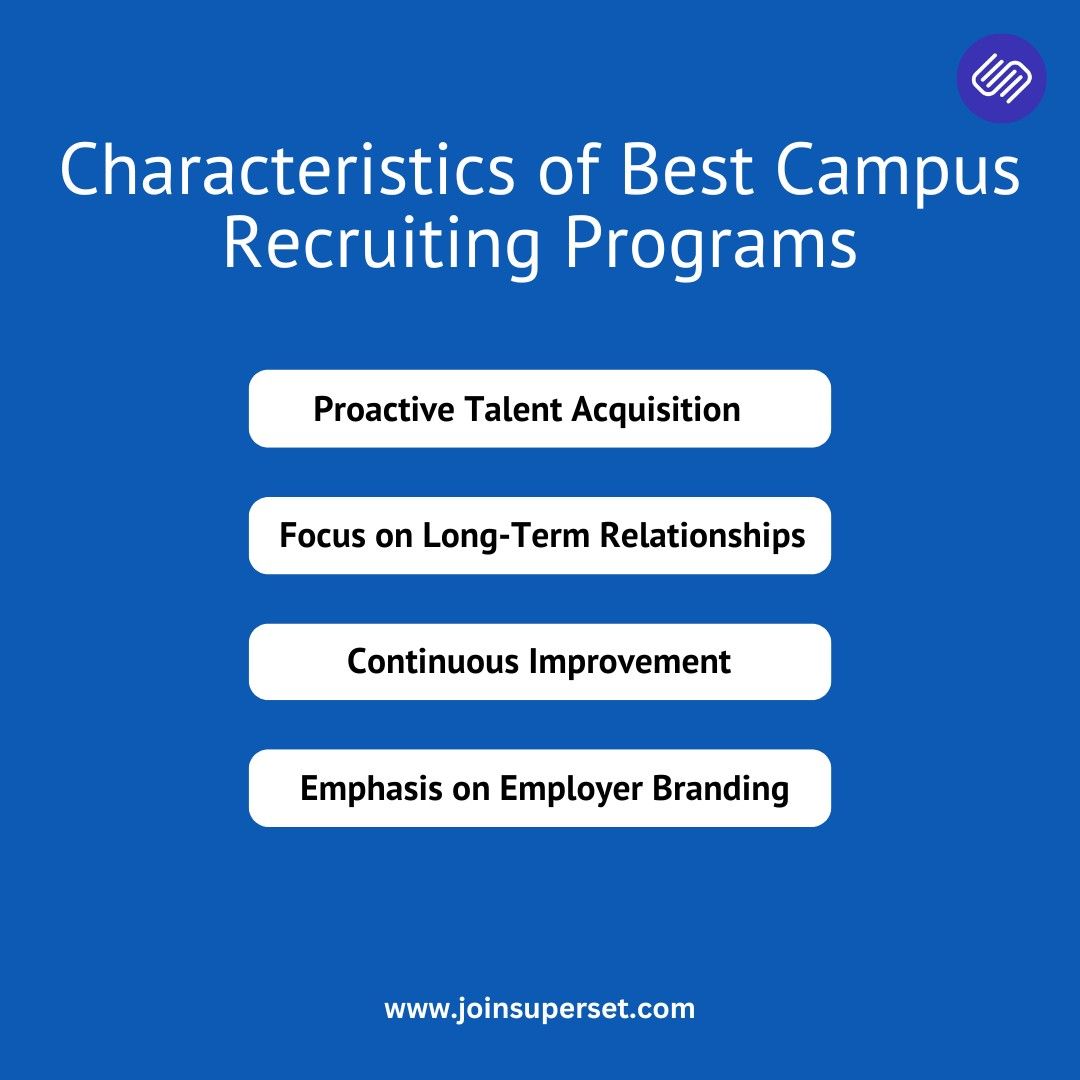In today’s fast-paced and constantly evolving job market, the gap between the skills students possess and the demands of the industry has become increasingly evident. Companies are seeking graduates who are not only well-versed in their academic fields but also equipped with practical skills that can be immediately applied in the workplace. However, many organizations find it challenging to identify and recruit candidates who meet these criteria. This is where a campus recruitment management system comes into play, offering a solution to bridge the skills gap by streamlining and enhancing the recruitment process.
Understanding the Skills Gap
The term “skills gap” refers to the disparity between the skills that employers need and the skills that job seekers possess. This gap is particularly pronounced in sectors that require specialized technical skills, such as information technology, engineering, and healthcare. However, it also extends to soft skills, such as communication, teamwork, and problem-solving, which are essential in almost every industry. The rapid pace of technological advancements has exacerbated the skills gap, as educational institutions often struggle to keep up with the latest industry trends. As a result, many graduates enter the job market without the full set of skills needed to succeed in their chosen fields. This mismatch between education and industry demands creates challenges for both employers and job seekers.
The Role of Campus Recruitment Management Systems
A campus recruitment management system is a comprehensive platform that helps companies streamline recruitment, from sourcing candidates to onboarding. These systems are designed to address the specific needs of campus recruitment, enabling organisations to manage large volumes of candidates efficiently and ensure that they are selecting the best talent for their needs.
Key Features of a Campus Recruitment Management System

- Automated Candidate Sourcing: A campus recruitment management system automates the process of sourcing candidates from multiple educational institutions. This includes integrating with university databases, job boards, and social media platforms to reach a broader pool of potential candidates.
- Skill Matching Algorithms: These systems often include advanced algorithms that match candidates’ skills with the requirements of the job. This helps recruiters quickly identify candidates who possess the skills that are in high demand, thereby reducing the skills gap.
- Assessment Tools: Many recruitment management systems include built-in assessment tools that allow recruiters to evaluate candidates’ technical and soft skills. These assessments can be customized to align with the specific needs of the industry, ensuring that only the most qualified candidates are shortlisted.
- Data-Driven Insights: A campus recruitment management system provides data-driven insights into the effectiveness of recruitment strategies. This includes tracking metrics such as the number of candidates sourced, the time to hire, and the success rate of new hires.
- Collaboration and Communication: Effective communication is crucial in the recruitment process. These systems facilitate seamless collaboration between recruiters, hiring managers, and educational institutions, ensuring that everyone is on the same page throughout the process.
Bridging the Skills Gap Through Best Practices
Implementing a campus recruitment management system is only part of the solution. To truly bridge the skills gap, companies must also adopt campus recruiting best practices that align with industry demands. Here are some strategies that can help:
1. Partnering with Educational Institutions
Building strong partnerships with educational institutions is one of the most effective ways to bridge the skills gap. By collaborating with universities and colleges, companies can gain early access to top talent and influence the curriculum to better align with industry needs.
2. Investing in Training and Development
Even the best candidates may not possess all the skills required for a specific role. To address this, companies should invest in training and development programs that help new hires acquire the skills they need to excel in their positions. A recruitment management system can help track the progress of these programs and ensure that employees are continuously developing their skills.
3. Leveraging Technology for Skill Assessments
Technology plays a crucial role in bridging the skills gap. Recruiting software platforms that include AI-powered skill assessments can help companies evaluate candidates’ abilities more accurately. These assessments can be tailored to the specific needs of the industry, ensuring that candidates are not only knowledgeable in their field but also possess the practical skills required to succeed.
4. Implementing Diversity and Inclusion Initiatives
Diversity and inclusion are essential components of a successful recruitment strategy. A diverse workforce brings a wide range of perspectives and experiences, which can lead to more innovative solutions to industry challenges. Best campus recruiting programs often prioritize diversity and inclusion, ensuring that all candidates have an equal opportunity to succeed. A campus recruitment management system can help track diversity metrics and ensure that recruitment efforts are inclusive. This includes monitoring the demographics of candidates, the success rate of diverse hires, and the impact of diversity on overall company performance.
The Impact of Best Campus Recruiting Programs
Companies that implement the best campus recruiting programs are more likely to bridge the skills gap and meet industry demands. These programs are characterized by a proactive approach to talent acquisition, where companies actively seek out candidates who possess the skills and attributes that are in high demand.
Characteristics of Best Campus Recruiting Programs

- Proactive Talent Acquisition: Best campus recruiting programs don’t wait for candidates to come to them. Instead, they actively seek out top talent through campus events, job fairs, and partnerships with educational institutions.
- Focus on Long-Term Relationships: These programs prioritize building long-term relationships with educational institutions, students, and alumni. This helps companies maintain a steady pipeline of qualified candidates who are ready to enter the workforce.
- Continuous Improvement: Best campus recruiting programs are always evolving. Companies regularly assess the effectiveness of their recruitment strategies and make data-driven adjustments to improve their outcomes. A recruitment management system is instrumental in this process, providing the insights needed to make informed decisions.
- Emphasis on Employer Branding: A strong employer brand is crucial in attracting top talent. Best campus recruiting programs focus on building and maintaining a positive employer brand, both on campus and online. This includes showcasing the company’s values, culture, and commitment to employee development.
Leveraging Recruiting Software Platforms for Success
In the digital age, recruiting software platforms have become indispensable tools for companies looking to bridge the skills gap. These platforms offer a wide range of features that streamline the recruitment process and ensure that companies are selecting the best candidates for their needs.
Benefits of Recruiting Software Platforms
- Efficiency: Recruiting software platforms like Superset automate many of the time-consuming tasks associated with recruitment, such as candidate sourcing, resume screening, and interview scheduling. This allows recruiters to focus on more strategic activities, such as building relationships with candidates and assessing their skills.
- Accuracy: These platforms use advanced algorithms to match candidates with job openings based on their skills, experience, and qualifications. This reduces the risk of human error and ensures that companies are selecting candidates who are truly qualified for the role.
- Scalability: Recruiting software platforms are designed to handle large volumes of candidates, making them ideal for campus recruitment. Companies can easily manage multiple recruitment campaigns simultaneously, ensuring that they are reaching a wide pool of potential candidates.
- Data-Driven Decision-Making: These platforms provide detailed analytics and reports on the recruitment process, allowing companies to make data-driven decisions. This includes tracking key performance indicators (KPIs) such as time to hire, cost per hire, and candidate satisfaction.
Conclusion
The skills gap is a significant challenge for companies across industries, but it is not insurmountable. By leveraging a campus recruitment management system and adopting campus recruiting best practices, companies can bridge the gap between education and industry demands. Best campus recruiting programs focus on proactive talent acquisition, long-term relationships with educational institutions, and continuous improvement. These programs, supported by advanced recruiting software platforms, ensure that companies are selecting the best candidates for their needs while addressing the skills gap. In an increasingly competitive job market, companies that invest in a robust recruitment management system and adopt innovative recruiting strategies will be better positioned to attract and retain top talent. By doing so, they not only address the immediate needs of their organization but also contribute to the long-term success of their industry.








